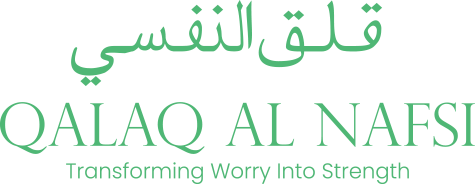Navigating Substance Abuse in Islamic Parenting: A Guide to Protecting Our Youth
As Muslim parents, entrusted with the sacred duty of nurturing our children physically, emotionally, and spiritually, we face unprecedented challenges today. The rising tide of substance abuse—vaping, alcohol, and even addictive forms of music—poses serious threats to our youth. These influences, combined with the turbulent nature of adolescence, demand that we remain vigilant and proactive in our protective roles. Despite the difficulties, the Quran provides us with hope and reassurance:
“And those who strive for Us – We will surely guide them to Our ways.”
— Quran 29:69
Understanding the Risks of Substance Abuse in Adolescents
The Teenage Brain: A Hotbed of Vulnerability
Adolescence is a critical period marked by profound brain remodeling. This neurological development leads to increased impulsivity, risk-taking behaviors, and an intense drive for peer affiliation and independence. These changes, while natural, increase susceptibility to substance use.
- Impulsivity and Risk-Taking: Teens are neurologically wired to seek novel experiences without fully appreciating consequences.
- Peer Influence: The desire to belong can pressure adolescents into experimenting with substances.
- Identity Formation: As teens strive to carve their own identity, they may rebel against parental guidance or societal norms.
This combination makes experimentation with substances such as nicotine (through vaping), alcohol, cannabis, and even addictive music patterns common during this stage.
Alarming Substance Use Trends
- In the U.S., over 20% of 12th graders report using alcohol, cannabis, nicotine vaping, or illicit drugs in the past 30 days.
- European youth show similar patterns, with nearly 80% having consumed alcohol at least once, and rising risky cannabis use and vaping.
- Muslim youth in Western countries reflect these trends, with studies citing alcohol use rates among American Muslim college students at nearly 47%.
- In the UK, an increase in normalized cannabis use has been observed among Pakistani and Bangladeshi youth.
- The Arab Youth Survey reports that 57% of young Arabs perceive substance use as rising.
These statistics highlight the urgent need for parental vigilance informed by Islamic teachings.
The Subtle Trap of Music and Other Addictions
Music, while often a source of joy and expression, can have addictive qualities. When content glorifies substance use or promotes values contrary to Islam, it distracts youth from their spiritual and moral development. Addiction to music or media—though less overt than substances—can erode focus, increase susceptibility to peer pressure, and foster harmful habits.
Islamic Teachings on Protecting Our Youth
Divine Command to Protect
Allah instructs believers:
“O you who believe, protect yourselves and your families from a Fire whose fuel is people and stones…”
— Quran 66:6
This command places an individual and collective responsibility on parents to shield their families from spiritual and physical harm.
The Model of Luqmān (AS)
Luqmān’s advice to his son (Quran 31:12-19) models ideal parenting:
- Instill Love and Awe of Allah First: Rather than merely issuing prohibitions, Luqmān began by nurturing a heartfelt relationship with Allah.
- Open Communication: He used wisdom and kindness, engaging in dialogue rather than harsh commands.
- Comprehensive Guidance: His advice covered belief, ethics, and behavior, creating a holistic framework.
Similarly, the Prophet Muhammad ﷺ’s gradual approach to prohibitions underscores the importance of relationship-building before imposing strict rules. For example, the prohibition of alcohol was revealed gradually, allowing people to adapt rather than rebel.
The Responsibility of the Parent as a Shepherd
The Prophet ﷺ said:
“Each of you is a shepherd and each of you is responsible for his flock…”
— Sahih al-Bukhari
This hadith reminds parents of their active and ongoing duty to care, guide, and protect their children from harm.
The Islamic Perspective on Vaping, Alcohol, and Addiction
Vaping: A Modern Danger
Despite misconceptions, vaping is impermissible in Islam due to:
- Serious Health Risks: Studies show vaping harms lung function and carries toxic chemicals.
- Unwholesomeness: Islam forbids unwholesome and harmful substances.
- Gateway to Cigarette Smoking: Vaping increases the likelihood of traditional smoking.
- Risk of Addiction: Nicotine is highly addictive, leading to further drug use.
- Waste of Wealth: Spending on harmful products is prohibited as wastefulness.
Allah commands:
“And do not throw [yourselves] with your [own] hands into destruction…”
— Quran 2:195
Alcohol: Clear Prohibition
Alcohol is categorically forbidden due to:
- Its spiritual harm: distancing one from prayer and remembrance of Allah.
- Physical harms: health deterioration and mental impairment.
- Social consequences: family breakdowns and violence.
The Quran states:
“O you who have believed, do not consume one another’s wealth unjustly…”
— Quran 4:29
and
“Intoxicants, gambling, [sacrificing on] stone alters [to other than Allah], and divining arrows are but defilement from the work of Satan, so avoid it that you may be successful.”
— Quran 5:90
Music Addiction and Moral Risks
While Islamic scholars differ on music’s permissibility, parents should be cautious when music:
- Promotes substance use or immoral values.
- Distracts from religious duties and family responsibilities.
- Becomes compulsive, impairing mental or spiritual health.
Encouraging content that uplifts and aligns with Islamic ethics supports healthier development.
Recognising Warning Signs in Children
Parents should be attentive to:
- Behavioral changes: increased secrecy, mood swings, irritability.
- Risk-taking behaviors: experimenting with substances or breaking rules.
- Changing peer groups toward those with risky habits.
- Withdrawal from family or religious activities.
Awareness enables early intervention and support.
Parenting Styles and Their Impact
Research shows authoritative parenting—warmth combined with clear, consistent boundaries—is most effective in reducing substance use risk. This approach balances love with discipline, allowing for open dialogue and mutual respect.
- Authoritarian (strict, low warmth) often breeds rebellion.
- Indulgent (high warmth, low discipline) lacks necessary boundaries.
- Neglectful (low warmth and discipline) leaves youth vulnerable.
Parents should strive to be authoritative, fostering trust and accountability.
Practical Strategies for Islamic Parenting in the Face of Substance Abuse
- Cultivate Islamic Knowledge and Spirituality
Begin early by building your child’s relationship with Allah, emphasizing His mercy, blessings, and the importance of obeying His commands. Teach the harms of substances in light of Islamic values, focusing on both worldly and spiritual consequences. - Maintain Open, Honest Communication
Create safe spaces to discuss peer pressure, substance use, and emotional struggles. Avoid authoritarian “just say no” lectures; instead, encourage questions and share relevant knowledge. - Set Clear, Consistent Boundaries
Establish family rules about substance use, media consumption, and social activities. Explain reasons behind rules to promote understanding and compliance. - Encourage Positive Peer Relationships
Support your children in building friendships within religious and community circles where Islamic values are upheld. - Monitor Media and Music Intake
Be aware of what your children listen to and watch. Engage in discussions about the messages conveyed and their impact on behavior and spirituality. - Teach Healthy Coping Mechanisms
Help your child develop skills to manage stress and bullying through physical activity, hobbies, prayer, and mindfulness. - Watch for Warning Signs and Intervene Early
Be vigilant for changes in behavior or social circles. Early intervention can prevent escalation. - Seek Professional Help When Needed
Substance abuse may require counseling or medical intervention. Do not hesitate to access Islamic or secular support networks.
A Personal Dua for Protection
“O Allah, the Most Merciful,
Grant us wisdom and strength to protect our children from harm.
Shield their hearts from the whispers of Shaytan and the allure of addiction.
Instill in them a deep love for You and a firm commitment to Your path.
Help us, as parents, to be patient, understanding, and steadfast.
Unite our Ummah in this noble mission of safeguarding our youth.
Ameen.”
United as an Ummah Against Substance Abuse
The challenges we face today are unprecedented, and the anti-family currents surrounding our children are strong. Yet, as parents and as an Ummah, we must not lose hope or assign blame. Instead, we must redouble our efforts, stand united, and share responsibility in protecting our youth.
The Quran assures:
“And those who strive for Us – We will surely guide them to Our ways.”
— Quran 29:69
Let us strive together with faith, knowledge, and compassion, empowering our children to resist harmful temptations and grow into righteous, healthy adults. Insha’Allah, through Allah’s guidance, our efforts will bear fruit.
Share this guide with fellow parents and community members. Together, we can build a safer, stronger future for our youth.
Sayyida Al Salaam
Certified Australian Muslimah Counsellor
Qalaq Al Nafsi
help@qalaqalnafsi.com


Leave A Comment